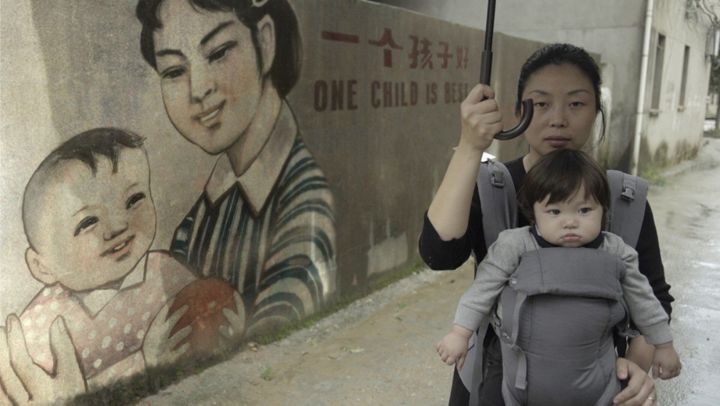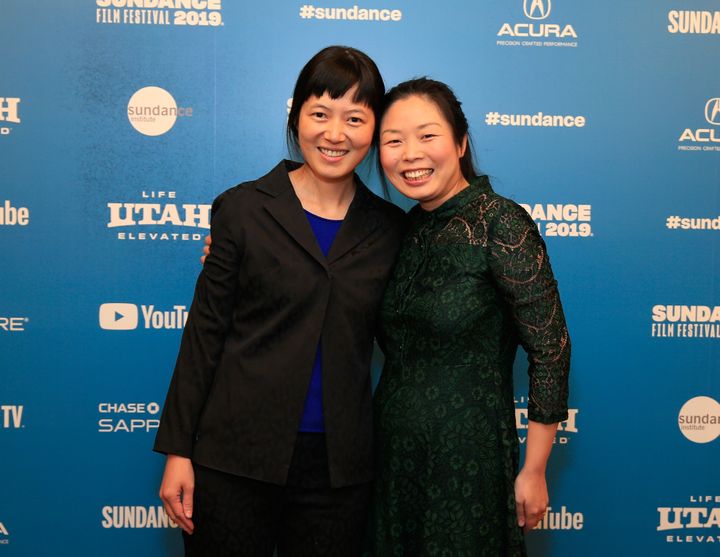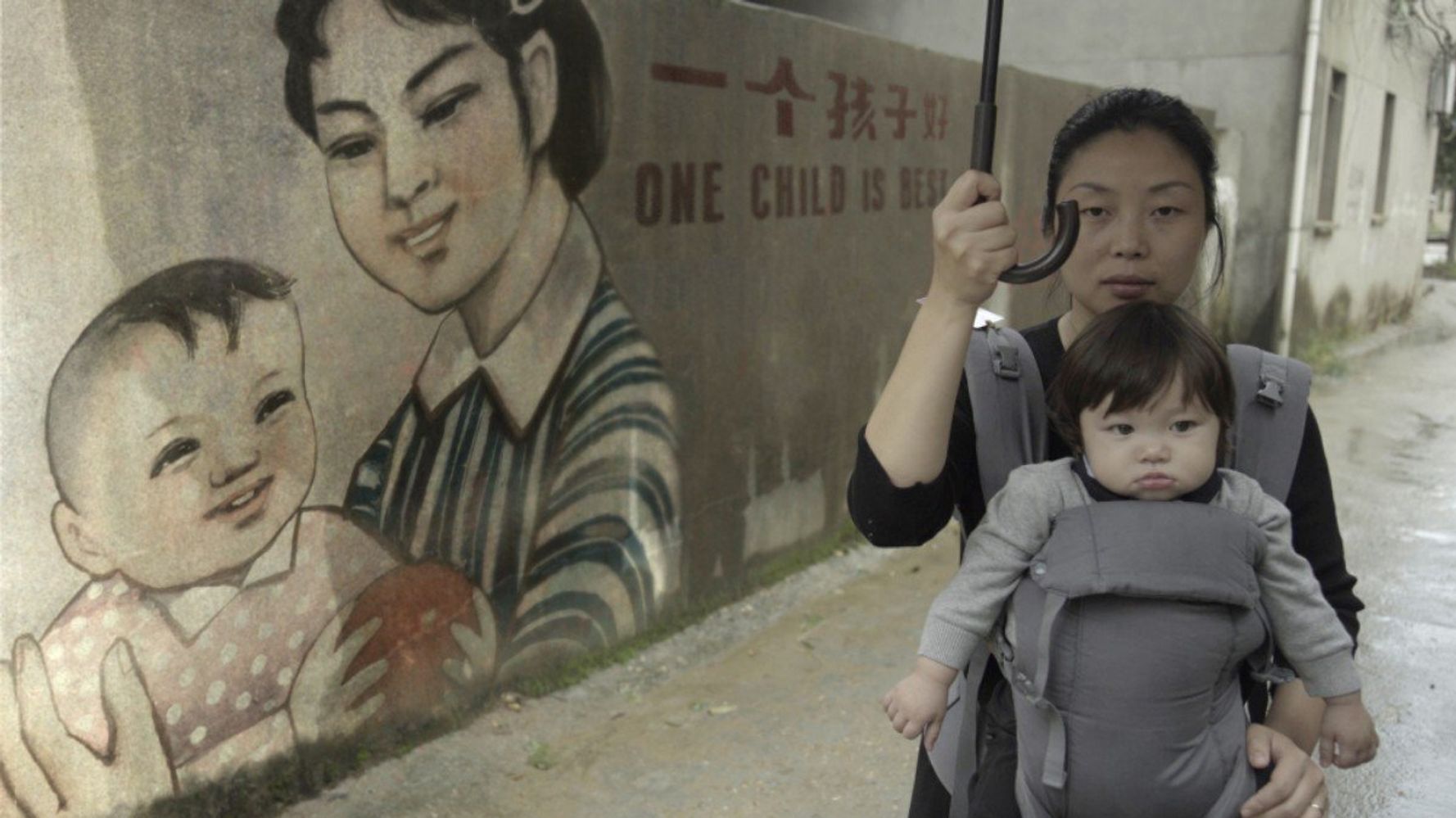[ad_1]
From 1979 to 2015, officials in China enforced a one-child policy as a method of population control, subjecting women to forced abortions and sterilizations and punishing those who refused to comply. Some women were tied up and dragged; many had their homes demolished and their possessions seized.
This dark chapter of history is vividly reexamined in the new documentary “One Child Nation,” by filmmakers Nanfu Wang and Jialing Zhang. Their film, which won the Grand Jury Prize for best U.S. documentary at the Sundance Film Festival earlier this year, is remarkable for both its thoroughness and how it explores the filmmakers’ personal stakes.
Wang is the film’s narrator, and her personal perspective provides a compelling emotional hook. She thought a lot about the one-child policy after the birth of her own child and, in the film, visits her hometown in China with her baby son in tow. She interviews family members affected by the policy, the official in her town who was in charge of enforcing the policy, and another villager who wrote operas that served as propaganda to promote the policy. From there, it becomes not just a movie about the restriction itself, but also about what it’s like to reassess the story you’ve been taught to blindly believe, an account that is devoid of “complexity and nuance,” Zhang said in an interview.
“There’s so many layers of complexity,” she said.

Under the one-child policy, girls were sent away, put up for adoption, given to human traffickers or even discarded, left to die in the street, because they were valued less than boys. Wang’s mother resisted a forced sterilization after having her, because her family wanted a son. In the film, several of Wang’s own family members reveal painful secrets, including her uncle recounting that he abandoned his daughter in a market, where she later died.
“It took a lot of courage to ask them” these questions, Zhang said. “It’s like opening up a lot of wounds. But once they started to talk about it, it seems that it’s good that they had this chance, because those things are just buried deep in their memories.”
Zhang said that for her and Wang, who both grew up in China but now live in the U.S., the process of making the film exposed profound contradictions and complicated what they thought they knew.
Wang recounts her childhood and how she was inundated with propaganda about the policy, which largely concealed its dark consequences. The film shows the ubiquitous array of colorful posters and murals and catchy slogans and songs that promoted the policy as beneficial to the country’s strength and economic development. It even includes footage of Wang as a kid, singing and dancing to one of the songs with other children in her village. During this period, the government celebrated so-called “family-planning officials” and midwives who performed abortions and forced sterilizations, hailing them as heroes.
In addition to enthusiasm, they also tried to instill fear. As Wang says in the film, the government would tell citizens that “we are fighting a population war,” which in reality, “became a real war against its own people.”
One of the film’s most striking takeaways connects the one-child policy, which forced women to get abortions, to laws in the U.S. that seek to roll back abortion access.
“I want my son to have a sibling like I did — but I want the decision to be my own,” Wang says toward the end of the film. “I’m struck by the irony that I left a country where the government forced women to abort, and I moved to another country where governments restrict abortions. On the surface, this seemed like opposites. But both are about taking away women’s control of their own bodies.”
Everyone is a victim when all the choices are taken from you.
“One Child Nation” co-director Jialing Zhang
In addition to its comprehensive scope, the film’s existence is remarkable given the obstacles the filmmakers faced in telling the story.
The Chinese government aggressively pushed the policy and proclaimed it a success when it ended in 2015, so Zhang and Wang were prepared for the possibility of threats or surveillance. Their worry was not unfounded: Zhang herself faced interrogation from government security officials in Beijing.
Some of the film’s potential subjects declined to be interviewed for fear of reprisal, Zhang said. But the filmmakers were also surprised that so many people “were so candid and willing to share with us their point of view,” given the sensitivity of the topic.

One of the film’s most poignant interview subjects is a midwife in Wang’s village, who estimates that she performed between 50,000 to 60,000 forced abortions and sterilizations — over 20 a day. She now helps people who are struggling with infertility. She considers her work today as “atonement,” as she says in the film, explaining that she has been wracked by guilt.
The midwife “thanked” Wang for interviewing her, Zhang recalled. “It was the first time she was able to talk about it.”
The film suggests that there were no heroes and villains. Through China’s propaganda and censorship efforts, each player in the saga was painted with a broad brush: Midwives, for example, were hailed for complying with the policy, and human traffickers were disparaged. Yet as the film illustrates, reality was so much more complicated.
The thread that connects all of the film’s subjects is that they often had no choice but to comply. As the midwife says: “We didn’t make decisions. We only executed orders.”
“Everyone is a victim when all the choices are taken from you,” Zhang said.
“One Child Nation” opens Friday in New York and Los Angeles, and nationwide later in August.
REAL LIFE. REAL NEWS. REAL VOICES.
Help us tell more of the stories that matter from voices that too often remain unheard.
[ad_2]
Source link

